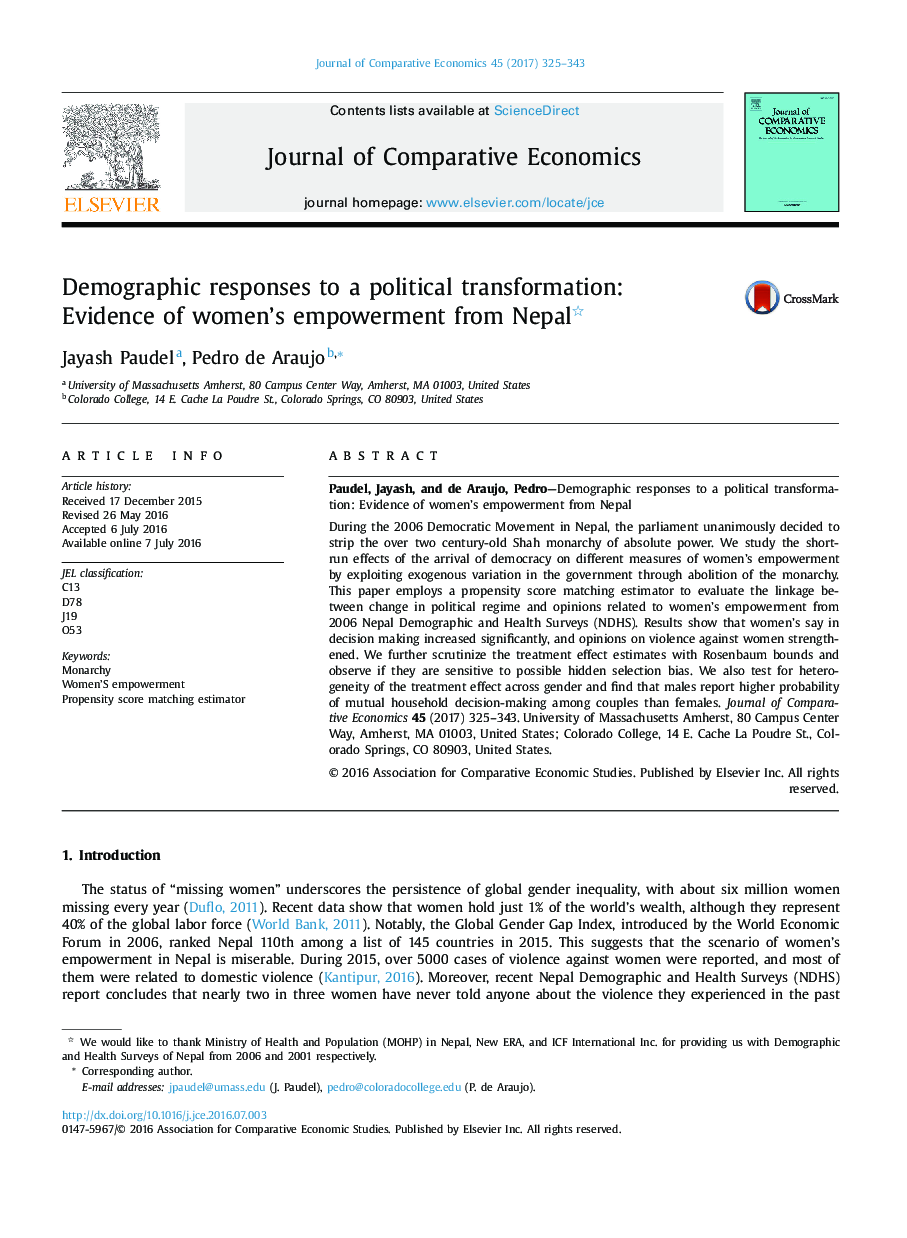| Article ID | Journal | Published Year | Pages | File Type |
|---|---|---|---|---|
| 5092052 | Journal of Comparative Economics | 2017 | 19 Pages |
â¢We evaluate the impact of monarchy abolition on womens empowerment in Nepal.â¢We use Nepal Demographic and Health Survey data from 2001 and 2006.â¢We employ propensity score matching estimation technique.â¢We find that womens say in mutual decision-making increased significantly.â¢Results on decision-making are higher among males.
During the 2006 Democratic Movement in Nepal, the parliament unanimously decided to strip the over two century-old Shah monarchy of absolute power. We study the short-run effects of the arrival of democracy on different measures of women's empowerment by exploiting exogenous variation in the government through abolition of the monarchy. This paper employs a propensity score matching estimator to evaluate the linkage between change in political regime and opinions related to women's empowerment from 2006 Nepal Demographic and Health Surveys (NDHS). Results show that women's say in decision making increased significantly, and opinions on violence against women strengthened. We further scrutinize the treatment effect estimates with Rosenbaum bounds and observe if they are sensitive to possible hidden selection bias. We also test for heterogeneity of the treatment effect across gender and find that males report higher probability of mutual household decision-making among couples than females.
